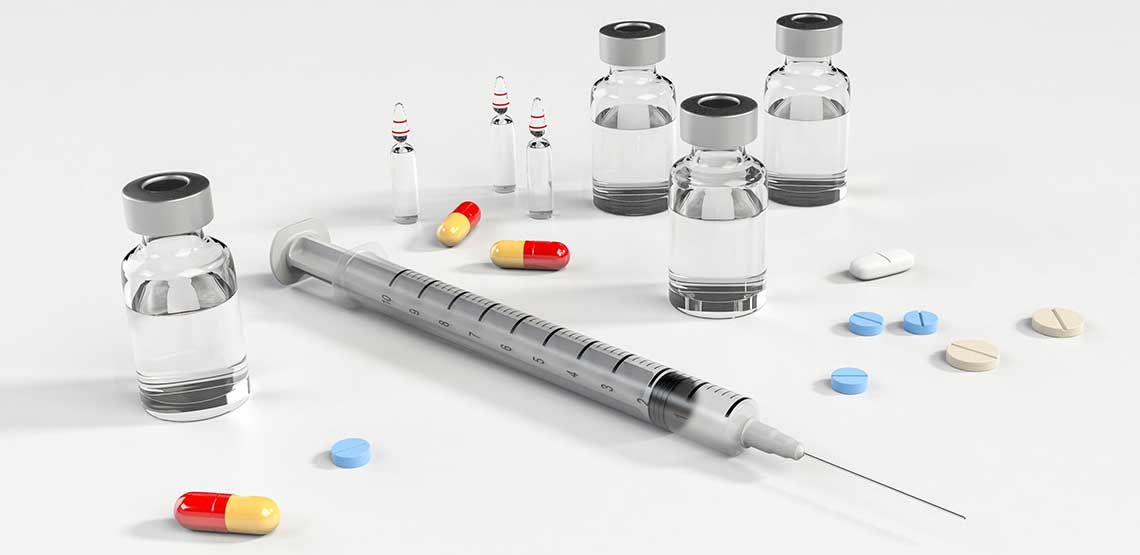Pneumonia Vaccine Schedule
Pneumonia is a very common respiratory disease. According to the Centers for Disease Control and Prevention (CDC), over 250,000 people in the United States seek treatment in a hospital for pneumonia each year. Many more people may have mild pneumonia and not realize they have the infection. Of those that seek hospital treatment, about 50,000 die yearly.
The good news is, pneumonia is preventable in many cases. Learning the pneumonia vaccine schedule and determining when you should get vaccinated, may help prevent you from developing pneumonia.
What Is Pneumonia?
Pneumonia involves inflammation and infection of the air sacs in the lungs. It can affect both lungs or only one. The small air sacs may fill with pus or fluid from the infection.
Symptoms of pneumonia may vary in severity and include:
- Chest pain
- Shortness of breath
- Cough, with or without excess mucus
- Chills
- Fever
Causes of Pneumonia
Various factors can lead to pneumonia. Typical causes include:
- Viruses
- Bacteria
- Fungi
Some people that have trouble swallowing are also at risk for aspiration pneumonia. Aspiration pneumonia develops when food or liquid is accidentally inhaled into the lungs, leading to an infection.
Pneumonia may be mild and clear up with only supportive treatment to ease symptoms. In other cases, the infection may become serious and lead to life-threatening conditions, such as sepsis and respiratory failure.
Viral vs Bacterial Pneumonia
The two main causes of pneumonia are viruses and bacteria. It is a misconception that viral pneumonia is always less severe than bacterial. Both types of pneumonia can lead to complications and severe symptoms. The symptoms of pneumonia, whether due to a virus or bacteria, are also the same. The main difference is in the treatment of pneumonia.
Viral pneumonia is not treated with antibiotics. But treatment for bacterial pneumonia does include antibiotics. Due to overuse and increasing resistance, some types of bacteria are becoming resistant to certain antibiotics. So, in some instances, if one antibiotic does not work, a second one may be needed.
To determine if pneumonia is viral or bacterial, doctors typically order a sputum sample. A sputum sample is mucus that the patient coughs out of the lungs. The sample of mucus is analyzed in the lab to check for the presence of bacteria. It also helps the doctor target the treatment more effectively, as some types of bacteria respond better to certain antibiotics.
Other than antibiotic treatment, viral and bacterial pneumonia are often treated the same. The exact treatment depends on the severity of symptoms. Treatment for both bacterial and viral pneumonia may include:
- Breathing treatments to open the airways
- Intravenous fluids to maintain blood pressure and hydration
- Oxygen therapy
Available Vaccines for Pneumonia
There are two vaccines available to prevent pneumonia, including:
- PCV13: Pneumococcal conjugate vaccine
- PPSV23: Pneumococcal polysaccharide vaccine (Pneumovax 23)
The PCV13 helps prevent 13 types of pneumococcal bacterial infection, including streptococcal, which according to the World Health Organization, is the most common bacterial cause of pneumonia.
The PPSV23 (Pneumovax 23) protects against diseases caused by 23 types of pneumococcal bacteria.
The vaccine recommendations are based on age and underlying medical conditions that can make someone more likely to develop pneumonia or have complications from pneumonia.
The CDC vaccine schedule recommends the following pneumonia vaccine schedule for infants, children and adults:
Children age two and younger should have the PCV13 vaccine as part of their immunization schedule. In children under two, the vaccine is administered in four doses at two, four, five and 12 months.
Children over two and adults from age 18 to 64 that have certain medical conditions which increase their risk of developing pneumonia or complications from pneumonia, should also receive the vaccine. Although it is best to talk with your doctor about your individual situation, people with the following medical conditions should consider the PCV13 vaccine:
- Compromised immune system
- Chronic diseases, such as asthma, heart disease and diabetes
- Smokers
- People that have a cerebrospinal fluid leak
The CDC also recommends adults over the age of 65 get the vaccine. Adults that decide to get the PCV13 only need one dose.
The recommendations for the PPSV23 are as follows:
- Children age two and over up to adults aged 64 years old that have certain medical conditions, such as heart disease, chronic lung disease or a compromised immune system should get the vaccine.
- Adults from age 19 to 64 that smoke
- All adults over the age of 65
The PPSV23 is administered in one dose. Additional doses may be recommended for people with certain medical conditions.
Older adults are especially susceptible to complications from pneumonia and should strongly consider following the vaccine recommendations. According to the American Thoracic Society, older adults are more likely to die from pneumonia than younger people. In fact, older adults that are hospitalized due to pneumonia have a greater risk of death from pneumonia than the top 10 other causes of hospitalization.
What to Expect
The vaccines are available through a doctor’s office and at medical clinics. Most people can receive the vaccines. The main contraindication is a past allergic reaction to a previous dose of the vaccine.
Most people that get the vaccine do not develop serious side effects. But some minor side effects are possible with either vaccine.
Possible pneumonia vaccine side effects include:
- Redness and swelling at the injection site
- Pain at the injection site
- Fussiness in babies and young children
- Fever
- Headache
- Tiredness
